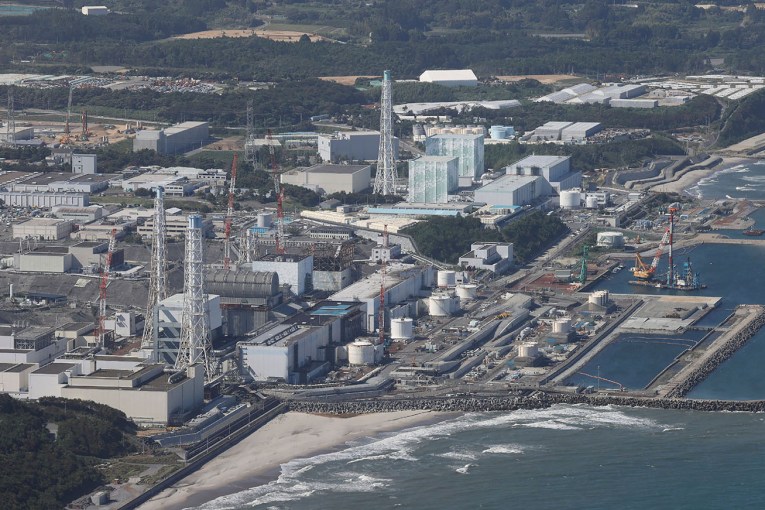Fallout from the BBC’s bombshell Diana interview has claimed a top scalp with the resignation of Lord Tony Hall who covered up the ‘deceitful behaviour’ of journalist Martin Bashir.
Lord Hall stood down from his prestigious present-day post as chairman of the National Gallery amid the ongoing controversy and outcry over the BBC’s conduct in securing the tell-all interview with the princess in 1995.
It comes as Mr Bashir has spoken out in the aftermath and claimed he “never wanted to harm” Diana with his controversial TV television interview and insisted “I don’t believe we did.”
Lord Hall was director of news and current affairs at the BBC in 1996 when he led the investigation which exonerated Mr Bashir, even though the journalist had previously admitted lying about faking documents to convince Diana to talk.
Lord Hall was heavily criticised in last week’s report from a subsequent inquiry which found Mr Bashir lied and used deceit to persuade Diana to agree to the interview in which she disclosed intimate details of her failed marriage to Prince Charles.
The recent inquiry by former master of the rolls Lord Dyson found the BBC’s own internal investigation, which Lord Hall led the year after Diana’s appearance on the Panorama program, had covered up the “deceitful behaviour” of Mr Bashir.
Lord Hall was also director-general of the BBC when Mr Bashir was controversially rehired as religious affairs correspondent in 2016 and later promoted to religion editor.
In a statement, Lord Hall publicly announced his departure from the National Gallery where he became a trustee in November 2019 and chair in July 2020.
“I have always had a strong sense of public service and it is clear my continuing in the role would be a distraction to an institution I care deeply about.
“As I said two days ago, I am very sorry for the events of 25 years ago and I believe leadership means taking responsibility.”
Mr Bashir has admitted to commissioning fake documents purporting to show payments into the bank accounts of members of the royal household to win the interview.

Princess Diana, pictured with William and Harry in 1995, was deceived by the BBC. Photo: Getty
Prince William spoke out strongly against the BBC after the report was released on Friday (Australian time), accusing the BBC of contributing to his mother’s paranoia and worsening his parents’ relationship.
Diana’s brother Earl Spencer has also outlined the impact of the interview, drawing a line between Mr Bashir’s conduct and his sister’s death two years later, claiming Mr Bashir’s actions led her to give up her royal security detail.
Mr Spencer has reportedly asked the Met Police to investigate the BBC, saying Diana was the victim of blackmail and fraud.
Lord Hall’s resignation comes after another former BBC executive involved in the 1996 internal investigation, Tim Suter, announced on Friday he was stepping down from his board role with media watchdog Ofcom.
Martin Bashir: ‘My family and I loved her’

Martin Bashir says he doesn’t believe he harmed Princess Diana. Photo: Getty
With his reputation in tatters, Mr Bashir has maintained Diana was never unhappy about the content of the interview and said they continued to be friends after the broadcast.
Speaking to the UK’s Sunday Times, he said the princess even visited his wife Deborah at St George’s hospital in Tooting, south London, on the day Deborah gave birth to the couple’s third child, Eliza.
He told the newspaper: “I never wanted to harm Diana in any way and I don’t believe we did.
“Everything we did in terms of the interview was as she wanted, from when she wanted to alert the palace, to when it was broadcast, to its contents … My family and I loved her.”
He said he was “deeply sorry” to the Dukes of Cambridge and Sussex, but disputes William’s charge that he fuelled her isolation and paranoia.
“Even in the early 1990s, there were stories and secretly recorded phone calls. I wasn’t the source of any of that.”
Mr Bashir, who left the BBC last week due to ill health, said: “I don’t feel I can be held responsible for many of the other things that were going on in her life, and the complex issues surrounding those decisions.
“I can understand the motivation [of Earl Spencer’s comments] but to channel the tragedy, the difficult relationship between the royal family and the media purely on to my shoulders feels a little unreasonable … The suggestion I am singularly responsible I think is unreasonable and unfair.”
MP demands more action
A senior Tory MP Julian Knight, chairman of the Commons Digital, Culture, Media and Sport Committee, has called on current director-general Tim Davie to provide a full explanation as to how Mr Bashir came to be re-employed in 2016.
Mr Knight said some people may suspect the journalist was given the religion job as a way of keeping quiet about what exactly he knew.
“That is certainly something which some may be suspicious about,” Mr Knight told the BBC Radio 4 Today programme.
“If they knew he had lied previously and also he’d had to resign from a mediocre American network, why was he good enough for the BBC?
“I just want transparency and answers from the BBC,” he added.
Mr Knight said the BBC should now consider paying compensation to “whistleblowers” who had had their careers damaged after raising concerns about the way Bashir had operated.
He pointed to the case of graphic designer Matt Wiessler, who was sidelined after informing BBC bosses that Mr Bashir had asked him to mock up a series of fake bank statements.
The false documents were used by the reporter to try to persuade Diana’s brother, Earl Spencer, that people close to her were in the pay of the press.

Lord Tony Hall was Director-General of the BBC when Martin Bashir was rehired in 2016. Photo: Getty
Mr Knight said Mr Davie should now meet Mr Wiessler to hear directly what he had to say.
“He is clearly very emotional, he feels this has probably impaired his life to a certain degree,” the MP told the BBC Radio 4 Today programme.
“I think the BBC needs to have a real open mind in terms of the possibility of compensation but also how it interacts with people like Mr Wiessler who clearly have faced quite profound consequences due to this fiasco.”
Mr Knight said there was a need for further reform at the BBC, and he called for a strengthening of editorial policy within the corporation.
However, he questioned a proposal by former BBC chairman Lord Grade for a new editorial board to oversee its journalism.
“I do wonder whether or not it will be a talking shop full of people with big salaries. The BBC does have a lot of boards,” he told the Today programme.
-with AAP








